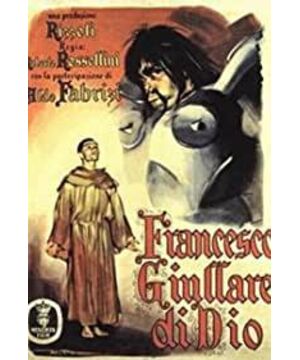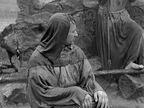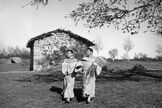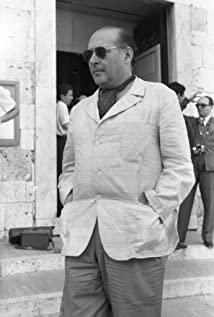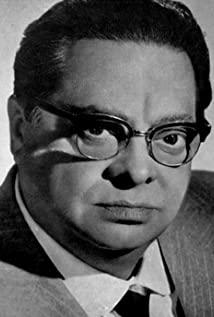One afternoon in early autumn five years ago, I got off the bus of the "9 Days 12 Countries" European Literacy Corps, stood at the In Assisi, Italy, I glanced around in confusion, trying to find a better reason why 3 million people come to this small city with a population of more than 20,000 and an area of only 4 square kilometers every year, is it because Is this the birthplace of Francis? In the years when anti-war and peaceful demonstrations were popular, there were often gatherings of marching enthusiasts, those rebellious youths, while sexually liberating, while printing a non-feminine medieval monk on a T-shirt.
Before entering the St. Francis Church, I accompany Uncle Angelo kindly along the way, and specially told us to turn off our mobile phones and not talk. You must know how difficult it is for a group of Chinese tourists, and it is also a group of Chinese media people, media elites.
In the church, someone stood in a corner crying silently. After coming out, Angelo looked at us very seriously and said, "Thank you for your cooperation, because this is very important."
Francis, who was born in Sicily in 1182, was originally an illiterate "rich second generation" who was a prodigal son. After spending 25 years, he was inspired by Christianity, gave up his property, practiced ascetic preaching, and served the poor and lepers. He died in 1226 and was canonized by the Pope the following year. In 1939, he was named the patron saint of Italy, which is commonly known as the patron saint. As a self-proclaimed cultural person, I walked past the silently weeping faces in the church, and suddenly realized that I could not confidently say that I could understand this.
After the end of World War II, Italian films were born, and Rossellini, the master of neorealism, became internationally renowned for his "Post-War Trilogy". Neorealism reflects contemporary social issues through the real life of ordinary people in content, uses non-professional actors, and focuses on live-action shooting. However, in 1950, Rossellini suddenly turned his attention to history. Based on a collection of life stories written more than 100 years after the death of St. Francis, he made a "Little Flower of St. Francis", which made people feel unexpected.
His daughter Isabella gave the answer: Rossellini fell in love with Hollywood star Ingrid Bergman at the time, and Bergman ran thousands of miles and was pregnant before the engagement was broken (Isabella was their love Crystallization), the pure image of the public lover instantly dissolves, arousing the public uproar. Love was criticized by society, and Hollywood even successfully launched the entire industry to boycott him. This is the realism that big directors must also face. Therefore, he came to Assisi, the spiritual capital of Italy, to find peace in the life of St. Francis.
It doesn't matter if the director found the answers he was looking for, especially considering that eight years later this daring cross-border romance ended in divorce; what matters is that a "neorealist" style of St. Francis entered The world of images - that little man, even Russell, who has always been derogatory of Christianity, honestly admitted in "History of Western Philosophy" that St. Francis, as "one of the loveliest figures in The spirit of fraternity, the talent of the poet". The peaceful faces of Francis and his brothers, the kindness to a somewhat pedantic demeanor, and the expressions of piety and perseverance, if it wasn't for Rossellini to let the real monks appear on the scene, I would not have dared to imagine how much professional actors rely on acting skills to act like?
A very special scene in the movie: the visit of Sister St. Clair. Many modern biographers cannot imagine the absence of romance in the friendship between the two saints.
Think about the director, Bergman was deeply moved after watching "Rome, Undefended City", and their meeting also started from a serious discussion of film art. When the "subconscious mind" is discovered or invented, there is no way for a man to prove that he has a heart for beauty, because even if he is not turbulent at the conscious level, it must be rippling at the subconscious level. unless he is gay.
At this point, the modern democratic society has gained equality, but lost the soul depth of the "dark middle ages". In Assisi's oil painting-like rural scenery, and in Rossellini's pure and crude lens language, an air of simplicity and enthusiasm comes from their common ideal: to imitate Christ's humility and poverty in the world.
A Saint Francis who loves peace, emphasizes obedience, and preaches forgiveness, is indeed too far from the demands of the revolutionaries. If everyone is like him, there is neither the possibility of revolution nor the necessity of revolution. The director cleverly added a narration to the film - "As a political force, he has just begun to stand with the poor". If there is a virtual political summit that travels through time and space, it will be embarrassing for leftists and rightists to meet him. He volunteered to be a proletarian, and the political basket could not fit one of his feet.
"What the proletarians lose in this revolution is only chains, and what they will gain is the whole world." In the context of revolutionary mentors, people forget what they are most likely to lose - history has proven that they have lost thousands of life, and in the new world they gained, a new chain was included for free.
St. Francis lacked the yeast the revolution needed most: hatred. If people always feel that their desires are hard to settle and their grievances are hard to disappear, it is inevitable that they will be kidnapped by temporary weakness or hatred in their hearts, and they will start from one mistake and slide into the abyss of countless mistakes. The faith of St. Francis is to return to the forgiveness of the Most High again and again, to gain the power to break the evil cycle.
Not only for humans, but even for a rabbit that fell into a trap, Francis would hold him in the woods and let it go, saying, "Brother rabbit, come to me, how can you let someone catch it". Even more "neo-realistic", because of his love for rabbits, birds, and wolves (though these animals are not on the list of endangered species even today), his admiration for closeness to nature, 1980 , the burden on St. Francis is heavier - he was canonized as an ecological guardian saint by the then Pope John Paul II, hehe.
He ate very little, walked barefoot, and even refused to live in the house. An environmentalist today is probably just turning up the air conditioner a few degrees in summer. The phraseology of the revolutionary mentor always goes well: "If everyone was like Francis, the world wouldn't need to be green."
Thinking back to those who stood in the corner of St. Francis' Church and wept silently , at this point, I'm still not sure I can understand them. The suffering of each individual is incommensurable. Just a few years ago, I was always eager to say, "I can empathize with me." In that eagerness, it proved that my impulses were stronger than the thoughtfulness of my friends.
Under the warm table lamp, facing the four walls of books and a window at night, one of those souls gently and firmly said to me that it was the tears of the innocent that dripped through the stone of lies of politics and history. When St. Francis smelled the fragrance of a flower, he said, "It lifts thousands from death." Those deaths, over countless ages, seemed so easy because of their excitement. ■
View more about The Flowers of St. Francis reviews


